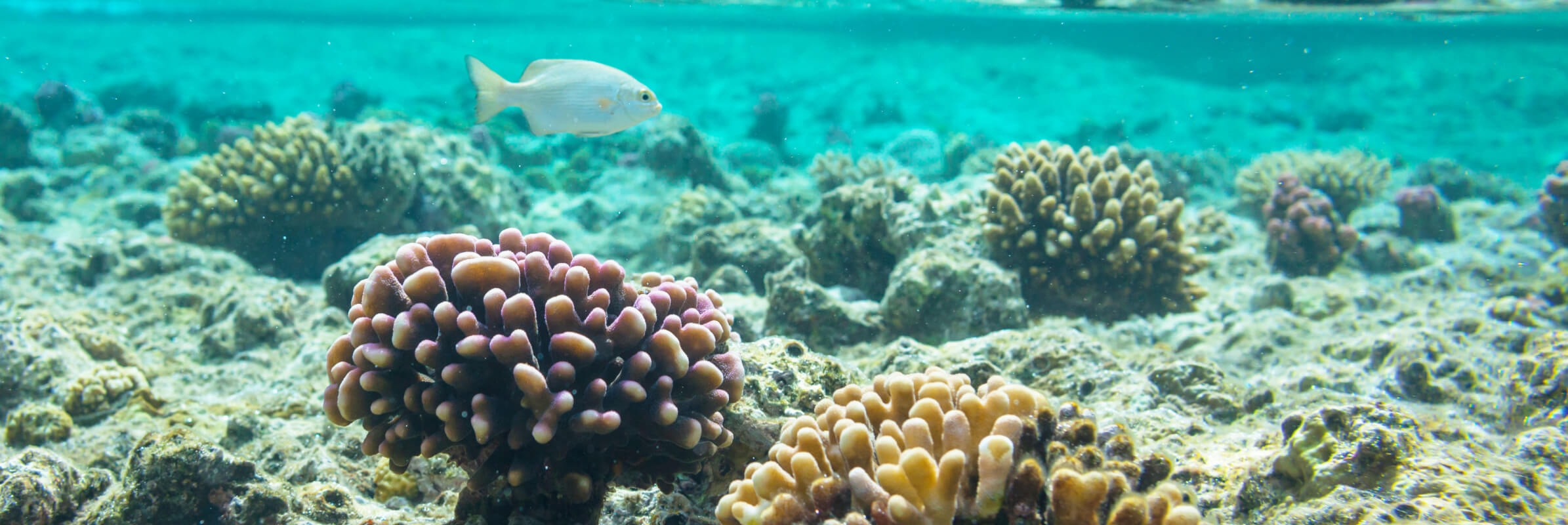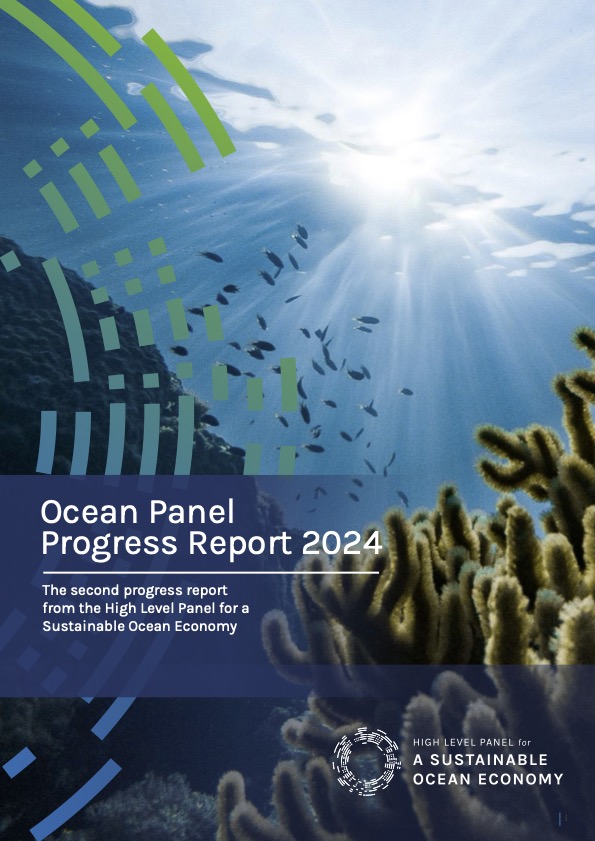The Ocean Panel’s Transformations agenda outlines a set of ambitious, yet practical recommendations to reshape the way we safeguard and utilise the ocean over the next decade—and ultimately manage humanity’s impacts on it—through transformative actions across these 5 key pillars: Ocean Wealth, Ocean Health, Ocean Equity, Ocean Knowledge, and Ocean Finance.
Transformations Agenda
Salud del océano
The Importance of a Healthy Ocean
Establish a healthy and resilient ocean—which mitigates climate change impacts and preserves planetary well-being—by reducing greenhouse gas emissions, preventing pérdida de biodiversidad, restoring coastal and marine ecosystems, curtailing pollution, and adopting a precautionary approach to economic activities on the ocean floor.

Encouraging Progress
Ocean Health priority actions show encouraging signs of progress, to varying degrees, on implementing the transformative actions needed to improve ocean health and resilience by 2030. For every action area assessed, multiple countries have managed to make at least “some progress”. This demonstrates that the Ocean Panel’s Ocean Health agenda is gaining traction. All countries have made some form of progress (‘some progress’, ‘significant progress’ or ‘achieved’) in ‘Halt the net loss and increase the extent of coastal and marine ecosystems’ and ‘Establish and effectively manage MPAs and OECMs’. Nearly all countries have made strides in incentivising the development, production and use of sustainable alternatives to plastics, and enforcing rules on waste shipments and illegal exports of plastic waste. Fourteen countries have either achieved or are making progress toward fully integrating ocean-based actions into their Paris Agreement reporting (the deadline for the next round of Nationally Determined Contributions [NDCs] is spring 2025).
Active Case Studies
Ocean Panel members are taking meaningful action in the area of ocean health: Indonesia launched a National Action Plan on Marine Plastic Debris with a goal of achieving a 70 percent reduction of its plastic debris by the end of 2025, Seychelles endorsed the Great Blue Wall initiative and is building a network of marine protected areas, Jamaica has secured about 57 hectares of wetland for restoration in Winns Morass, Kenia’s federal waste management interventions are working to establish a circular economy model for solid waste management, and Namibia committed to reducing greenhouse gas emissions from ships by 50 percent by 2050 through the ratification of Annex VI of the International Convention for the Prevention of Pollution from Ships.
Specific Achievements
More broadly, as of August 2024, 14 Ocean Panel countries are signatories to the Agreement under the United Nations Convention on the Law of the Sea and three countries have ratified the agreement, which focuses on the conservation and sustainable use of marine biological diversity in areas beyond national jurisdiction
Ocean Climate Action
The leaders of the Ocean Panel have underscored the urgent need for effective, scaled-up and ambitious actions to reduce global greenhouse gas emissions while carrying out just transitions and fostering climate resilience. At COP26, the Ocean Panel reaffirmed its commitment to 100 percent sustainable ocean management by issuing a leaders’ statement urging all actors to join them in accelerating progress on key ocean-based climate actions. Additionally, at COP28, the Ocean Panel issued a ‘Joint Declaration on Ocean and Climate Action‘, which recognises the critical need to sustainably manage 100 percent of the ocean area under national jurisdiction, and urges countries around the world to join in committing to safeguard the long-term health and resilience of the ocean.
Current global commitments are not sufficient to limit global temperature rise to below 2 degrees Celsius (°C), as analysis indicates that they would lead to a rise of 2.7°C. The Ocean Panel–commissioned report El océano como solución al cambio climático: oportunidades de acción actualizadas highlights that ocean-based climate solutions that are ready for action now could deliver up to 35 percent of the annual greenhouse gas emission cuts needed by 2050 to keep global temperature rise below 1.5°C.
Nationally Determined Contributions
NDCs are one of the main vehicles for countries to communicate their national climate targets, policies and measures aimed at achieving the long-term goals of the Paris Agreement.
As of July 2024, 15 out of 18 Ocean Panel members had included at least one target, policy or measure aimed at ocean-based climate actions in their NDCs. The most common ocean-based climate actions found across the 18 members assessed are in marine conservation and restoration. The Ocean Panel remains committed to promoting ocean-based climate action and urges all stakeholders to join in advancing ambitious solutions to urgently reduce global greenhouse gas emissions.


